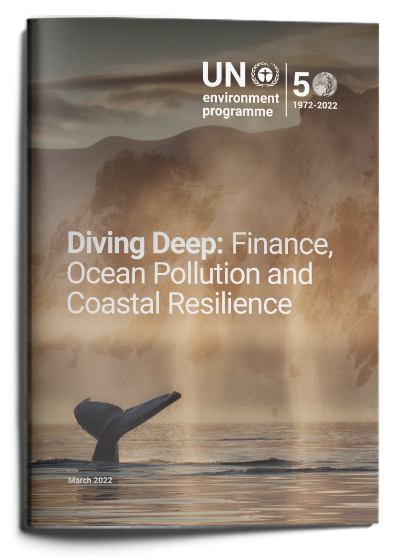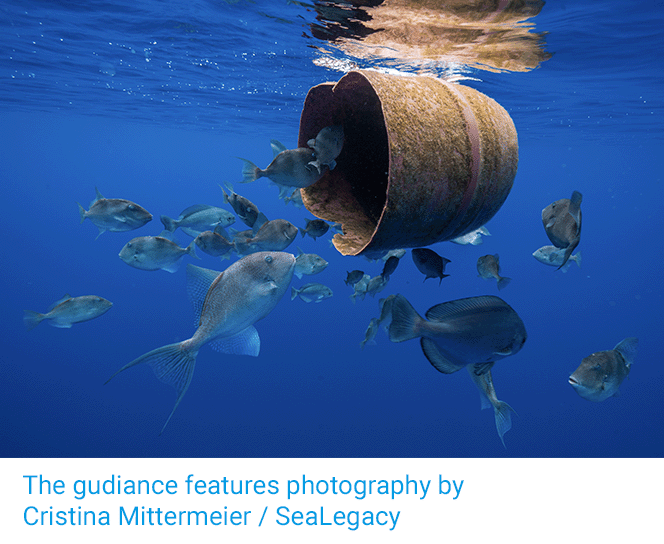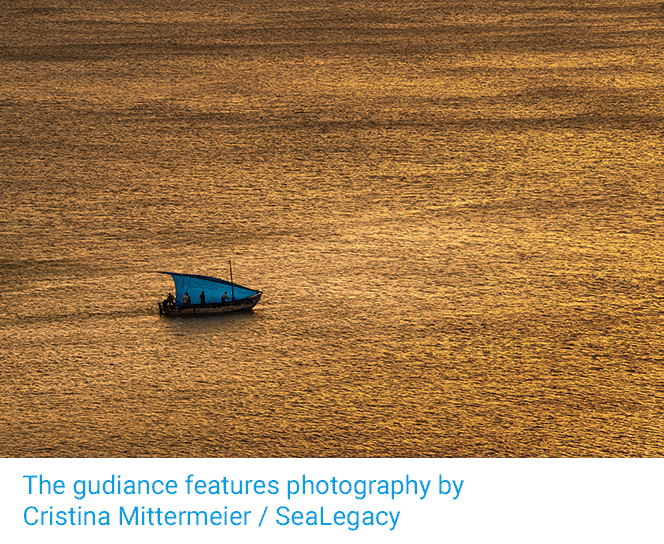
New guidance launched today by UNEP FI provides banks, insurers, and investors with a science-based, actionable toolkit to align their decision-making with a healthy ocean and accelerate the sustainable transformation of critical marine sectors.
Launched at The Economist World Ocean Summit, the guidance focuses on the problem of solid waste pollution—including plastics—and coastal infrastructure projects. It provides easy-to-follow recommendations on where to challenge companies to adopt clear sustainable practices, to avoid financial transactions with companies that have no sustainable transition plan in place and to seek out opportunities in ocean-related sectors where there is evidence of sustainable practice, for example designing product for reuse, repair, and recycling at end of life.
The ocean covers 70% of the earth’s surface, holding 97% of all water and 80% of all life forms. Major ocean sectors such as tourism, shipping, seafood and coastal construction projects contribute to a ‘blue’ economy, which is projected to double in size from its 2010 level to USD 3trn by 2030, with some ocean industries set to grow faster than the global economy.
The hazards of waste and plastics

Businesses involved in this cycle of waste creation are backed by banks, insurers and institutional investors which, through their relationships and products, can have a major role in influencing the strategic direction of their clients and accelerating their sustainable transition by redirecting financial flows.
The guidance explicitly states that financial institutions should avoid funding a range of scenarios including, but not limited to, projects in ocean-related sectors where there is evidence that the full product life cycle has not considered end-of-life options for waste, nor end-of-life of the product, and where there is evidence of material sourcing policies which do not align with the Paris Agreement transition plans.
Protecting coastal infrastructure
There is an increasing need for coastal infrastructure such as seawalls and levees to mitigate the worst impacts of sea level rise due to climate change. An estimated USD 18.3trn investment is required from 2015 to 2100 to protect coastal communities and mitigate these impacts under the most pessimistic climate scenario. Financial institutions can use the guidance to positively influence property developers when they are developing, constructing, operating and maintaining floodwalls, tide gates and other projects. It explores nature-based solutions, including reefs, mangroves and sand dunes which may be up to 50% cheaper than traditional infrastructure, even when providing the same service, and can provide additional environmental benefits such as natural carbon sinks.
The guidance also warns financial institutions to avoid financing environmentally and socially harmful activities including the construction of grey infrastructure in protected areas or areas of high conservation value; where there is an absence of policy for preventing the leeching of chemical pollutants associated with infrastructure construction into the environment; where there are unsafe working environments and where the workforce is not paid a locally appropriate living wage.
Watch the recording of our webinar to find out how to use this new resource with industry insights from experts in the field.
The guidance is a sister publication to Turning the Tide (2021) which covered shipping, seafood, ports, marine renewable energy and coastal tourism. Both reports build on the foundation of the Sustainable Blue Economy Finance Principles, a keystone for financing activities in the blue economy, supported by over 70 institutions worldwide with a collective total asset size of over USD 11trn.

Quotes
“This practical toolkit empowers financial institutions to understand how their activities can positively influence coastal development projects and solid waste management and adjust their approach to lending, investing and insuring companies in these sectors.Banks, insurers and investors have a major role to play in financing this transition to a sustainable blue economy, helping to rebuild ocean prosperity and restore biodiversity to the ocean. The Sustainable Blue Economy Initiative provides the principles, and guidance to set them well on the journey to achieve SDG 14 – ‘life below water’.” – Eric Usher, Head of UNEP FI.
“Our economic systems are inextricably linked to the health of the ocean, which is suffering severe damage from the triple crises of nature loss, rampant pollution and climate change. This guide aims to protect and restore the world’s ocean for the benefit of current and future generations by embedding sustainability into the financial activities of public and private financial institutions.“ – Leticia Carvalho, Head of the Marine and Freshwater Branch, UNEP
“Through my photographs I strive to connect the reader with the wonders of the ocean and bring to life the beauty and fragility of this vital ecosystem. I hope these visual stories will bring a sense of urgency, inspiring the financial community and all readers to protect the wild spaces of the world by adjusting their professional actions and decision-making, embracing our collective responsibility to be honest stewards of our planet’s limited resources.” – Cristina Mittermeier, World-renowned Photographer and co-founder of SeaLegacy


